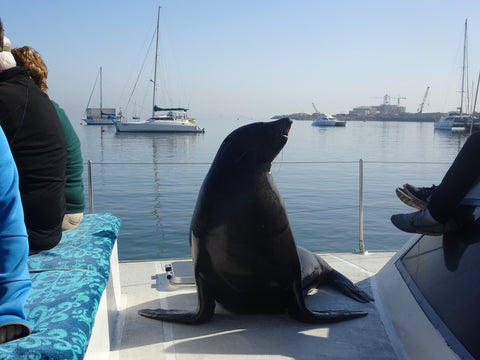Catch up on part II of Amanda and her family's trip of a lifetime through the Namibian desert in Africa.
So far, Amanda and her family have travelled through desert and mountains, from Windhoek to Sossusvlei, arriving finally at the coastal city of Swakopmund on the evening of day 4.
You can read part I here if you missed it.
Day 5: Swakopmund and Walvis Bay
After a long drive through the desert to reach the city of Swakopmund, we treated ourselves to a delicious meal at local haunt 'The Tug Restaurant', renowned for its great local seafood - it came highly recommended!
We woke up on day five bright and early to be surrounded by a blanket of fog. We had read in our guidebook that Swakopmund was subjected to this fog every morning for around 9 months of the year - it was interesting to experience it!
After a delicious breakfast, the fog had lifted and we drove along the coastline from Swakopmund towards the beautiful Walvis Bay, ready for our planned sea excursion. Our catamaran was waiting for us at the waterfront and we boarded along with one of our new friends…
Our guide told us there were three seals who were 'members of the crew’ and that they would jump on the catamaran at certain points in the trip. He was right! It was the funniest thing to experience – the seals were so friendly and playful and we were able to take plenty of close-up photographs of our new friends.
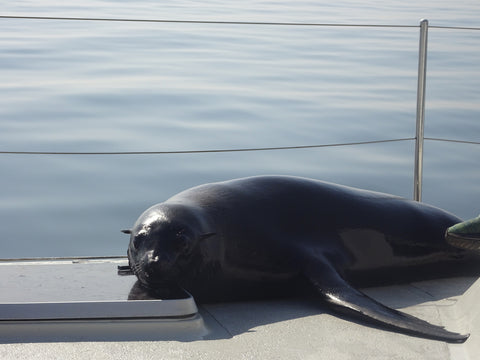
Cruising towards Pelican Point lighthouse we eventually arrived at the fur seal colony at Cape Cross. The noise level from the seals was remarkable to hear – they were all talking very loudly!
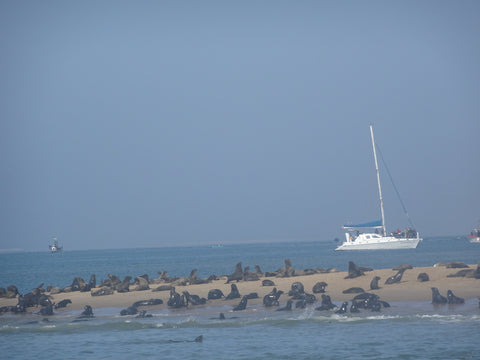
Our guide pointed out the colourful oyster platforms important to the local food industry, and before we knew it there was a pod of dolphins swimming alongside the catamaran – it was so exciting! Apparently, they're not so easy to spot, so we were very lucky that day.
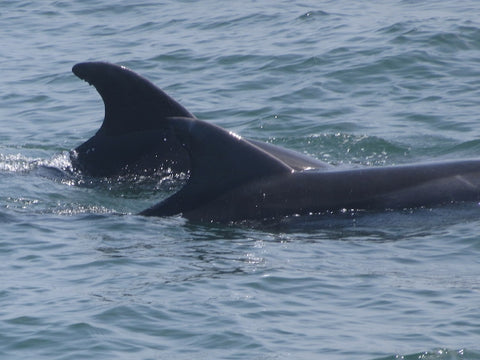
The 3.5-hour excursion included a wonderful buffet with champagne (and oysters of course) with the occasional visit from some friendly pelicans! It was amazing to see these fascinating birds so close up, especially the large wingspan of the great white pelican which can be around 11 feet.
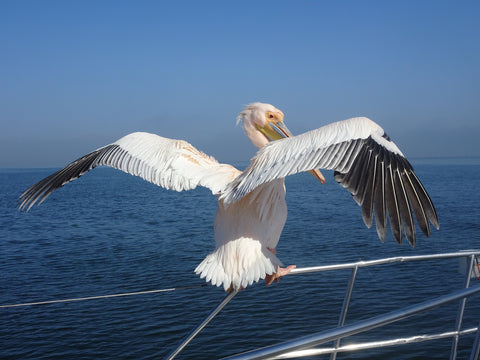
In the afternoon, we returned to Swakopmund to discover the intriguing beach resort complete with German architecture, palm-lined avenues and historical buildings.
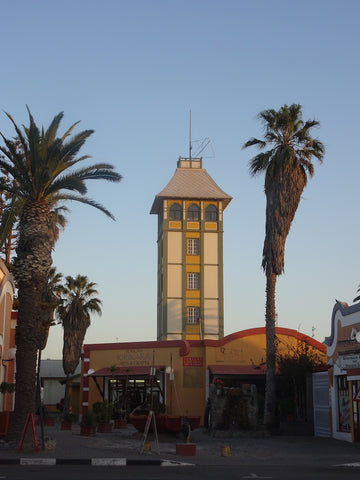
We took a walk along the waterfront to watch the Atlantic ocean hit the rocks, finishing the day with the best fish and chips we have tasted in a long time.
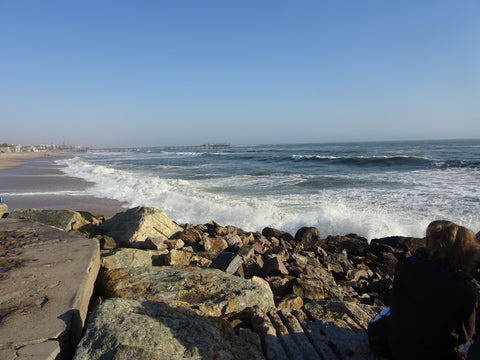
Day 6 - Damaraland and Twyfelfontein
We set off up north to Damaraland and the Twyfelfontein area where we would be staying at the eco-friendly Camp Kipwe. The drive was about 5 hours passing through some incredible desert and mountain scenery.
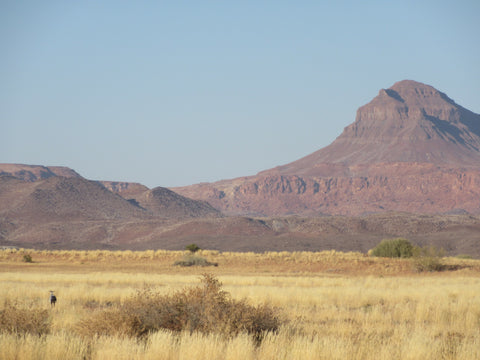
Camp Kipwe is a very special place with igloo-style bedrooms that blend in beautifully with the natural surroundings.
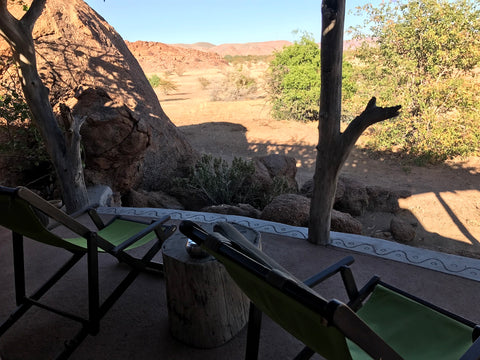
As we approached, it appeared as though the huge granite rocks had fallen down the hills; when we arrived, we realised that the camp was actually built into these rocks, plunge pool and all. It was amazing!
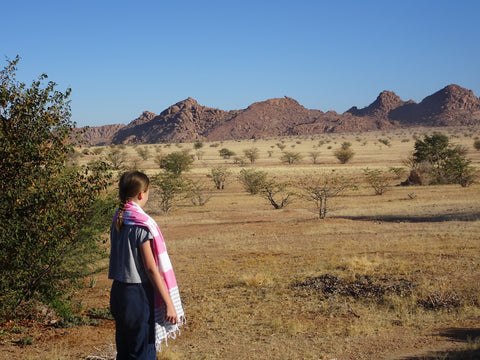
We watched the sunset over the Aba Huab valley from Camp Kipwe’s enchanting hilltop lounge before indulging in a fabulous home-cooked dinner. We then settled in for the night, ready for a 5 am start the next day.

Day 7 - Desert Elephant drive
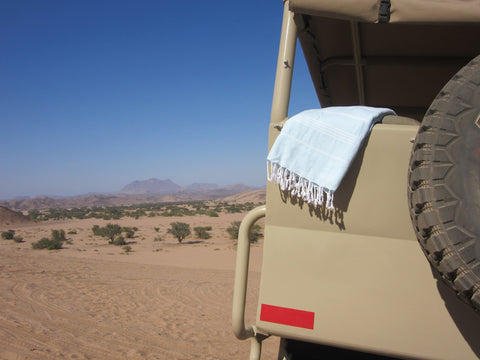
At last, the activity we had all been anticipating - the desert-adapted elephant drive was something I will never forget. Our guide was on a mission to find these majestic desert elephants for us, which took some time but eventually, some footprints were spotted.
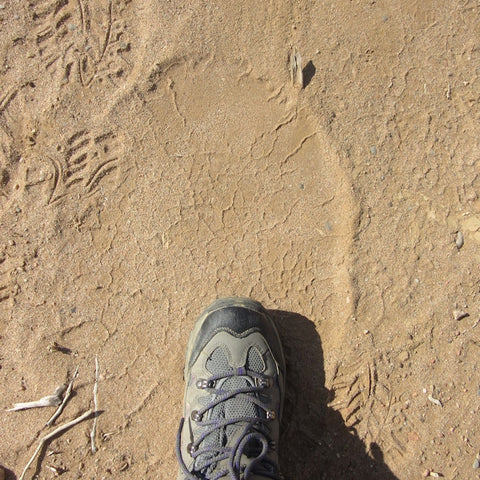
Not far away, a large family of the desert dwelling elephants were munching at the trees relaxed and happy, strolling along. We were so close to them and sat in our vehicle for about 30 minutes enjoying this extraordinary sight.
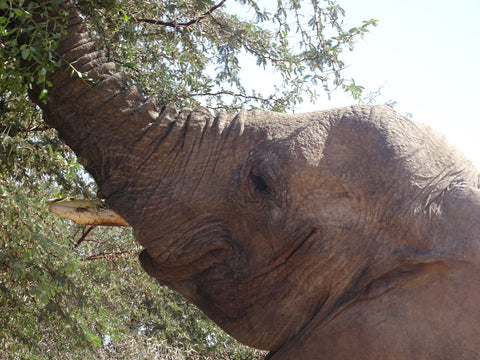
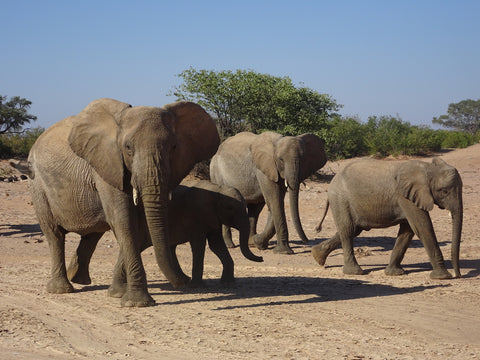
It is amazing how these rare elephants have adapted to the endless arid landscape of Damaraland. Our guide drove the jeep to the top of a sandy mountain where we spotted ostriches in the distance.
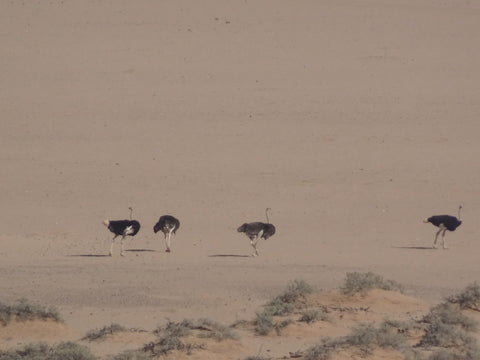
Our afternoon outing took us up to ‘The Burnt Mountain’, a captivating area of volcanic rock famous for the ‘Valley of the Organ Pipes’. This incredible natural wonder formed thousands of years ago when basalt slabs were gouged out by a river. The site resembles a mini version of 'The Giant’s Causeway' in Northern Ireland.
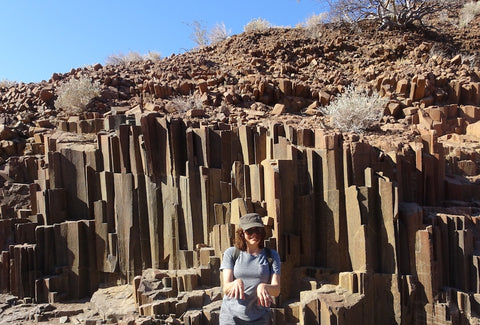
Our final stop was at the UNESCO World Heritage site called Twyfelfontein, famous for its ancient rock carvings, which were created thousands of years ago by hunter-gatherers – absolutely fascinating.
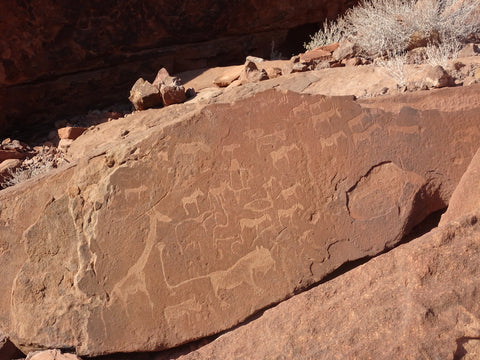
Day 8 - Etosha National Park
The Etosha national park is Namibia’s finest and most important game reserves. We were staying just outside the park within the Ongava Concession at Andersson’s Camp.
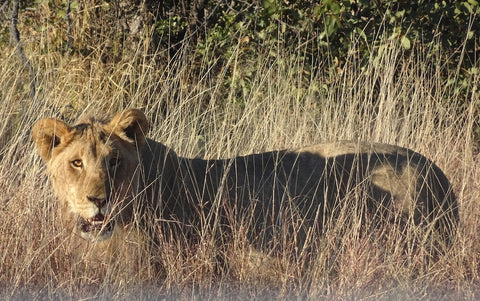
Here, we went on the first of several astonishing game drives – by early evening we had come across some very sleepy lions, which you can hear more about in part III of our Namibian travel adventure!

